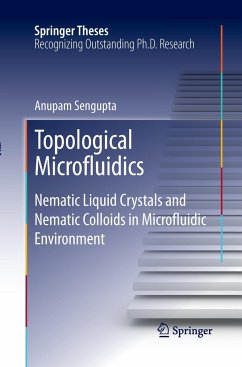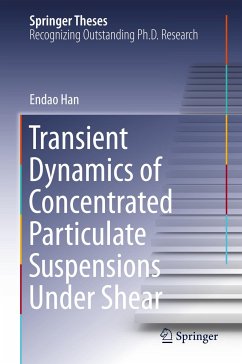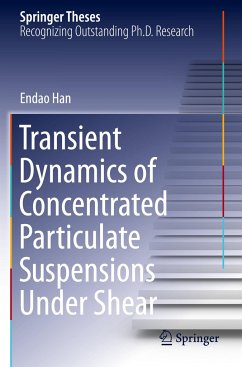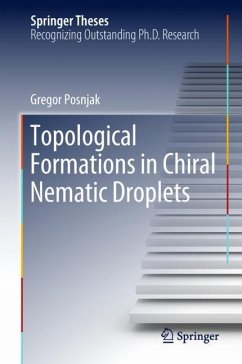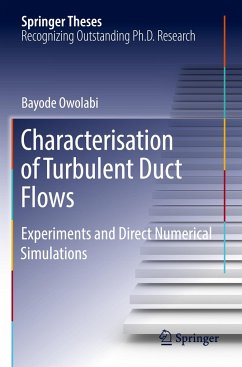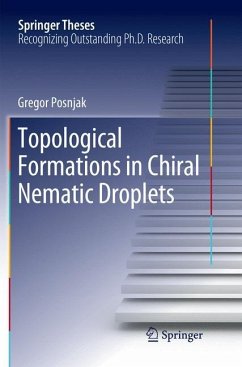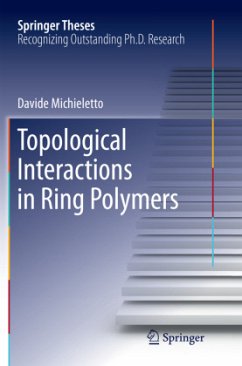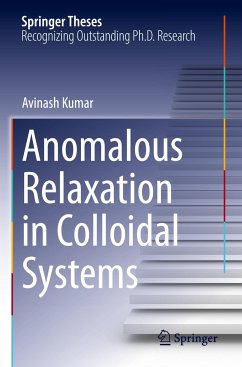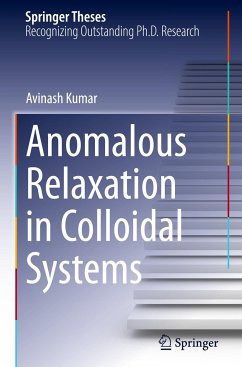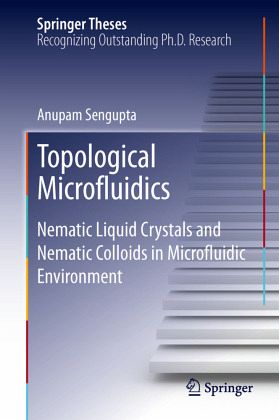
Topological Microfluidics
Nematic Liquid Crystals and Nematic Colloids in Microfluidic Environment
Versandkostenfrei!
Versandfertig in 6-10 Tagen
76,99 €
inkl. MwSt.
Weitere Ausgaben:

PAYBACK Punkte
38 °P sammeln!
This work represents one of the first comprehensive attempts to seamlessly integrate two highly active interdisciplinary domains in soft matter science - microfluidics and liquid crystals (LCs). Motivated by the lack of fundamental experiments, Dr. Sengupta initiated systematic investigation of LC flows at micro scales, gaining new insights that are also suggestive of novel applications. By tailoring the surface anchoring of the LC molecules and the channel dimensions, different topological constraints were controllably introduced within the microfluidic devices. These topological constraints ...
This work represents one of the first comprehensive attempts to seamlessly integrate two highly active interdisciplinary domains in soft matter science - microfluidics and liquid crystals (LCs). Motivated by the lack of fundamental experiments, Dr. Sengupta initiated systematic investigation of LC flows at micro scales, gaining new insights that are also suggestive of novel applications. By tailoring the surface anchoring of the LC molecules and the channel dimensions, different topological constraints were controllably introduced within the microfluidic devices. These topological constraints were further manipulated using a flow field, paving the way for Topological Microfluidics. Harnessing topology on a microfluidic platform, as described in this thesis, opens up capabilities beyond the conventional viscous-dominated microfluidics, promising potential applications in targeted delivery and sorting systems, self-assembled motifs, and novel metamaterial fabrications.





